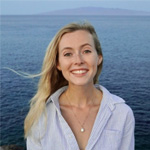8 Auditory Processing Activities to Boost Your Child’s Listening Skills
 Rebecca Huxley
Rebecca Huxley Physiotherapist
December 18, 2023
Introduction
Auditory processing describes the way we interpret sounds and speech. Some children find this very difficult, because their brain works in a way that makes it harder for them.
In this article, we’ll discuss how auditory processing activities can help your child improve their listening skills and boost their neurodevelopment as a whole. Lots of these exercises incorporate other aspects of neurodevelopment such as motor skills. We’ll also discuss the Soundsory® program and how it’s the perfect complementary therapy to auditory processing exercises. Soundsory® is a 40-day programme that can boost kids’ neurodevelopment. The program pairs enhanced rhythmic music with holistic, whole-body exercises.
Key Take-Away Messages
| Which skills can auditory processing activities help with? |
| Auditory processing activities can help with many of the symptoms of Auditory Processing Disorder (APD). Some of these symptoms are also relevant to children with Attention-Deficit Hyperactivity Disorder (ADHD). Here’s a few things that auditory processing exercises can help with: ✅ Paying attention ✅ Reading and spelling ✅ Hearing speech in noisy environments ✅ Needing things repeated frequently ✅ Getting easily distracted ✅ Identifying changes in tone ✅ Following directions ✅ Remembering what’s been said |
What is Auditory Processing Disorder?
Are you concerned that your child may have Central Auditory Processing Disorder (CAPD or APD)? Or perhaps your child has already received a diagnosis of APD, and you’re looking to learn more about the condition. If not, you can try our online Auditory Processing Disorder Test (for educational purpose only).
Auditory processing is one of three ways that we absorb information and learn new things. The other two are visual processing (seeing) and tactile-kinesthetic processing (doing). Usually, when we listen to sounds around us, this information travels to our brain to be interpreted and used. For children with APD, it’s harder to understand sounds and speech than it is for most kids. This is because their neural connections that process auditory information don’t work as well as they should. [1]
Symptoms of APD in children:
- Problems with paying attention
- Trouble with hearing speech in noisy environments
- Problems with learning to read
- Frequently asking for things to be repeated
- Easily distracted
- Difficulty with reading and spelling
- Problems with picking up on changes of tone
- Difficulty with following directions
- Problems with remembering what has just been said
- Difficulty locating the source of sounds
Is auditory processing linked to ADHD?
There’s no doubt that many of the behaviors associated with APD are also found in children with ADHD. One study found that 50% of children with APD also had ADHD, highlighting the importance of working with professionals who understand both conditions. [2]
Do auditory processing activities work?
There’s research to show that auditory processing exercises can be really effective to improve symptoms of APD in kids. One study tested a 12-week auditory processing exercise program with children aged 7-11 with APD. They found that the kids’ auditory processing skills and real-life functional listening skills improved significantly. [3]Another study trialed a program of auditory processing activities, which was a mix of therapist-led (1 hour per week) and patient-led (1-2 hours per week). The kids in this study had a diagnosis of APD and were aged 7-13. After six weeks, their reading, language, and auditory processing skills improved. [4]
How can I improve my child’s auditory processing?
The Soundsory® headphones use groundbreaking technology to work your child’s auditory system in a way that stimulates neurodevelopment. While listening to the music and participating in the program, your child trains the connection between their brain and ears to work more efficiently.
There are additional games that can help to develop those listening skills outside of the Soundsory® program. There are so many great resources out there, but we’ve listed a few of our favorites below. While you’re playing some of these games, you can include ways to boost other types of neurodevelopment. For example, your child can practice their fine motor skills while drawing pictures from instructions, or you could include some vestibular exercises to challenge their balance while playing Simon Says.
Auditory processing exercises and games
- Telephone: This is a game where one person whispers a short message to another person who then repeats the message to another person. By the end, hopefully you will have the same message as the original. This is a fantastic game to practice listening and verbal skills.
- Hullabaloo: This is a game that you can purchase. It’s really great because you have to listen to the box that gives you directions like jump to one object, or skip to another. So it combines motor and auditory skills!
- Musical chairs: Great game, have a set of chairs back to back with one less than the amount of people playing. Turn on some music and have everyone walk in a circle around the chairs to the music. Then randomly turn off the music and have everyone try and sit down on a chair. The last one without a chair is out. This is another way to combine motor and auditory.
- I went to the store and I bought… Continue to add and remember what was before. This can turn into a long list, challenging both listening skills and short-term memory.
- Story recall: Read a story appropriate for your child’s age, and have them tell you what it was about or ask them questions about a character. This is great to develop listening skills, verbal skills and short-term memory.
- Directed drawing: Ask your child to draw with specific instructions like “draw a house on a hill, with two red doors and windows, draw two clouds in the sky”. Make this age and skill-appropriate – use multiple steps or single steps as appropriate. This can help your child develop their fine motor and auditory skills.
- Simon Says: One person gives directions like “Simon says put your hands on your head”. Keep repeating directions for different poses in this manner, until one of those instructions is given without the words ‘Simon says’ spoken before it. Whoever follows the instruction is out. This game works really well to combine the auditory and motor system. Any time you can combine full-body movement with listening is a great opportunity to boost neurodevelopment.
- I spy: A great way to combine auditory and vision. You describe the thing you see in the room. “ I spy with my little eye something big, something yellow, something you can hold” etc.
Conclusion
Auditory processing activities can be such a great way to boost not only your child’s listening skills, but neurodevelopment as a whole. This is particularly powerful when paired with complementary therapies like Soundsory®.
Soundsory®’s 40-day programme provides the perfect blend of music therapy with full-body exercises. This program helps children with APD, ADHD, autism, and sensory needs to develop the skills they need.
Learn more about the Soundsory® program
FAQs
References
- Iliadou, V. (Vivian), Ptok, M., Grech, H., Pedersen, E. R., Brechmann, A., Deggouj, N., Kiese-Himmel, C., Śliwińska-Kowalska, M., Nickisch, A., Demanez, L., Veuillet, E., Thai-Van, H., Sirimanna, T., Callimachou, M., Santarelli, R., Kuske, S., Barajas, J., Hedjever, M., Konukseven, O., & Veraguth, D. (2017). A European Perspective on Auditory Processing Disorder-Current Knowledge and Future Research Focus. Frontiers in Neurology, 8. https://doi.org/10.3389/fneur.2017.00622
- Riccio, C., Hynd, G., Cohen, M., Hall, J., Molt, L. Comorbidity of Central Auditory Processing Disorder and Attention-Deficit Hyperactivity Disorder. (1994). Journal of the American Academy of Child & Adolescent Psychiatry, 33(6), 849–857. https://doi.org/10.1097/00004583-199407000-00011
- Loo, J. H. Y., Rosen, S., & Bamiou, D.-E. (2016). Auditory Training Effects on the Listening Skills of Children With Auditory Processing Disorder. Ear and Hearing, 37(1), 38–47. https://doi.org/10.1097/aud.0000000000000225
- Sharma, M., Purdy, S. C., & Kelly, A. S. (2012). A randomized control trial of interventions in school-aged children with auditory processing disorders. International Journal of Audiology, 51(7), 506–518. https://doi.org/10.3109/14992027.2012.670272




